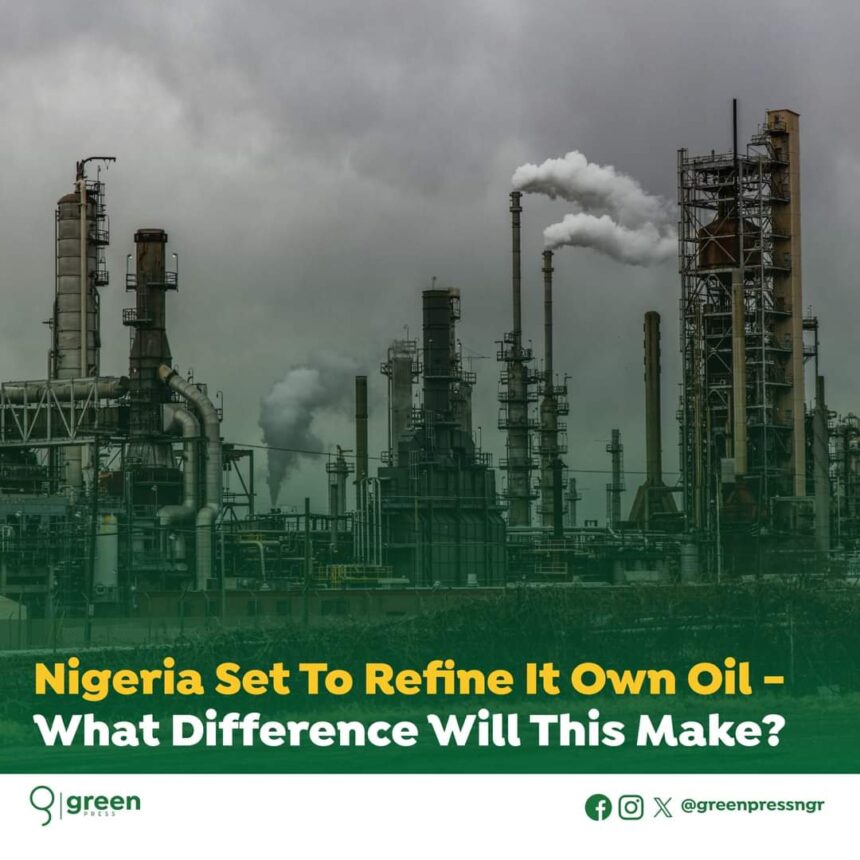After decades of numerous false starts, Nigeria appears on the verge of shedding the undesirable label as an oil-producing country without the capacity to refine its own crude. The country, Africa’s largest economy, is the only member of OPEC that meets 90% of its domestic consumption of refined petroleum products through importation.
That looks set to change with the rehabilitation of the Port Harcourt Refinery, which is government-owned, and the emergence of the Dangote Refinery, a private refinery owned by billionaire businessman Aliko Dangote.
Mele Kyari, the Group Managing Director of the Nigerian National Petroleum Company Limited (NNPCL), said in a recent statement that the Port Harcourt Refinery will resume operations in April, following the completion of mechanical works on the facility.
The statement also confirmed that it has received over 450,000 barrels of crude from the Bonny Oil and Gas Terminal, a joint venture asset operated by Shell Petroleum Development Company of Nigeria Limited (SPDC). The refinery holds symbolic importance for Nigeria; it is the country’s oldest, built in 1965 nine years after oil was discovered in the creeks of the Niger Delta.
Meanwhile, the sprawling Dangote refinery, reportedly the world’s largest single-train refinery, can produce 650,000 barrels per day when fully operational. With such capacity, the refinery can meet Nigeria’s domestic needs for gasoline, diesel, kerosene, and aviation jet fuel. But full operations won’t begin until after a few months, even as it has commenced refining with crude supplied by NNPCL and other sources.
Combined, both refineries can immediately impact Nigeria’s oil sector, diversifying the source of refined petroleum products and saving the country scarce forex spent on imports.
According to Joe Nwakwe, the former President of the Nigeria Society of Petroleum Engineers, when the country exports crude to Europe and imports fuel, “we export jobs and put pressure on our scarce foreign exchange.” The pressure on the foreign exchange has drained Nigeria’s reserves, contributing to its foreign exchange fluctuations and weakened currency, before the stabilizing effects of the new CBN Governor Yemi Cardozo.
Key to note is the emphasis on job importation. The absence of local refining has denied Nigeria’s trained personnel engagement opportunities, while the country keeps their counterparts in foreign countries in jobs. It is a crucial issue for a country that has always struggled to create jobs faster than its learning institutions churn out certified individuals.
Equally significant, if not of greater concern to the average Nigerian, is the projected impact on the cost of petrol at the pump. Life after the removal of fuel subsidy, the corrupt and opaque payments made to oil contractors ostensibly to keep the price of the product low, has required some adjustments.
Adetunji Oyebanji, an ex-president of the Major Oil Marketers Association of Nigeria (MOMAN), thinks that a potential reduction in the price of PMS owing to the emergence of local refineries would depend on some factors. These include the commencement of gasoline production and whether or not payment for crude is made in dollars or naira.
Other stakeholders argue that it would ensure stable supply, ending perennial scarcity issues that turn people to the black market where they oftentimes pay a premium for sub-standard products.


